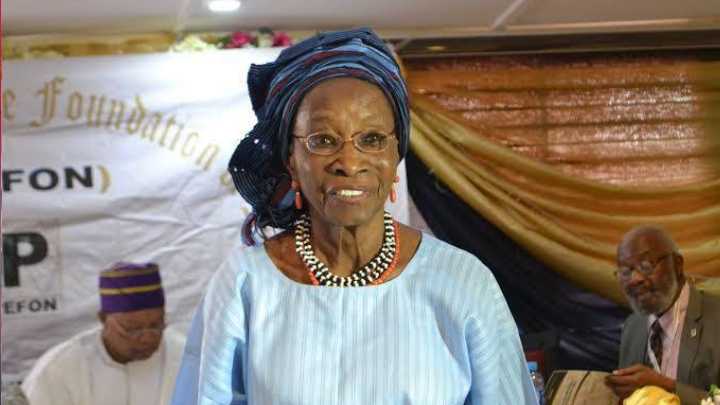Nigeria Mourns: First Female Minister Ebun Oyagbola Passes Away at 94
A legacy of groundbreaking leadership and resilience in Nigerian politics has been immortalized with the passing of the nation’s first female minister Ebun Oyagbola, who died at the age of 94. Her death marks the end of an era defined by visionary governance and the tireless pursuit of gender equality in public service. Prominent political figures, including President Tinubu and Governor Abiodun, have expressed deep sorrow and paid heartfelt tributes to a pioneer whose contributions reshaped the contours of Nigerian governance.
Ebun Oyagbola’s career was characterized by an unwavering commitment to public service and an unrelenting drive to break barriers. Appointed during a transformative period in Nigeria’s political evolution, she was a trailblazer who not only shattered the glass ceiling by becoming the first woman to serve as a minister but also set an enduring precedent for subsequent generations of female leaders. Throughout her extensive tenure in government, Oyagbola was recognized for her administrative acumen and her strategic initiatives that bolstered sectors critical to social welfare and economic development. Her innovative policies in social services and community development enhanced the quality of life for countless citizens, leaving an indelible mark on the nation’s socio-political landscape.
In the wake of her passing, expressions of grief and admiration poured in from across the political spectrum. President Tinubu, in a statement released shortly after news of her demise, acknowledged Oyagbola’s monumental role in shaping modern Nigerian politics. He emphasized that her legacy would continue to inspire future policymakers and serve as a beacon for women aspiring to hold public office. Governor Abiodun echoed similar sentiments, describing her as a symbol of courage and an embodiment of the progressive ideals that the nation must uphold. Their public mourning underscored the magnitude of her impact and the profound loss felt by the highest echelons of government.
During her tenure, Oyagbola championed several transformative reforms that addressed social inequities and catalyzed economic progress. Her tenure was marked by initiatives that promoted educational opportunities, improved healthcare delivery, and enhanced infrastructure development in underserved communities. These measures not only contributed to the immediate betterment of living standards but also laid the groundwork for sustainable long-term growth. Her forward-thinking approach and commitment to inclusive governance resonated with a broad spectrum of society, from grassroots communities to the corridors of power.
Beyond her administrative achievements, Ebun Oyagbola’s personal dedication to mentoring young women in politics remains one of her most enduring legacies. In an era when the involvement of women in high-level decision-making was a rarity, she provided a powerful role model for aspiring leaders. Her career served as a testament to the transformative power of perseverance and the critical importance of diversifying leadership in a dynamic society. Her efforts not only challenged entrenched gender norms but also fostered an environment in which the talents and perspectives of women could flourish, thereby strengthening the overall fabric of Nigerian democracy.
As the nation mourns this monumental loss, discussions have also emerged regarding the need to preserve and build upon the progressive policies she once championed. Various political and civic groups have called for a renewed commitment to the values she espoused—accountability, transparency, and gender equity in governance. Memorial services and tributes planned in her honor are expected to galvanize efforts to continue her work, ensuring that her vision for a just and equitable Nigeria endures beyond her lifetime. Lawmakers and political analysts alike stress that preserving her legacy is paramount to maintaining the momentum for reform and inspiring the next generation of leaders.
Ebun Oyagbola’s passing is not merely the end of an illustrious career; it is a poignant reminder of the transformative power of dedicated public service. As Nigeria reflects on her contributions, the enduring lessons of her leadership continue to serve as a catalyst for progress. In mourning her loss, the nation also reaffirms its commitment to the principles she upheld, striving to build a future where equality, justice, and opportunity are not just ideals but realities for all citizens.
Focus Key Phrase: First Female Minister Ebun Oyagbola

